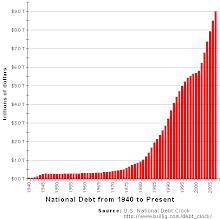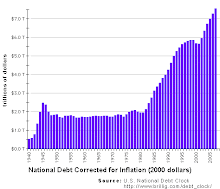As you may have noticed, the critics of President Bush's new tax cut package claim it is a sop to the rich. This charge makes us wonder if they've even read the plan. The truth is that the Bush proposals would make the tax code more progressive, not less. And this isn't altogether a good thing.
The soak-the-rich facts, if any journalists cared to look, are contained in the income distribution tables on the plan compiled by the Treasury Department. Looking at the impact for 2003, Treasury finds that the average reduction in income taxes is a touch more than 12%. But for those who make less than $30,000 the average reduction is about 17%, while for those who earn more than $100,000 it is 11.4% or less. (See the table below.)
There's even better news for modern Robin Hoods. Because the percentage reduction for families with incomes under $50,000 is greater under the Bush plan, those families would pay a smaller share of the total income tax than they do under current law.
Tax Cuts for the Poor
Lower earners would get a larger percentage income tax cut on average under the Bush plan.
Income
Percentage reduction
0-$30,000
17.0%
30-40,000
20.1%
40-50,000
14.5%
50-75,000
11.4%
75-100,000
13%
100-200,000
11.4%
200,000-plus
11.2%
Total
12.3%
Families with incomes over $100,000 would end up paying a larger share of the total income tax. These families would pay 73% of all federal income taxes. Not to put too fine a point on this income redistribution, but taxpayers with incomes over $200,000 could expect on average to pay about $99,000 in taxes under Mr. Bush's plan.
How could this happen? Mr. Bush would relieve 3.8 million lower-income taxpayers from paying any income taxes. The chief tax remover comes from his proposal to accelerate the increase in the child credit to $1,000 from $600, bumping a touch more than three million taxpayers right off the rolls.
No doubt the Bush team proposed this tilt toward lower income taxpayers to mute the class-warrior critics, not that we've noticed any lower decibel level. But one certain consequence is that the plan exacerbates the growing problem of a bifurcated tax system.
We raised this issue several weeks ago, pointing out that the unceasing addition of exemptions, deductions and credits to the tax code was shrinking the tax-paying base. And, as more lower-income people saw tax liabilities fall to zero, more upper-income people shouldered a larger part of the tax burden. We did not, by the way, suggest that lower income people should pay higher taxes. We even went out of our way to flog our favorite horse that everybody should pay less in taxes.
We are merely pointing out the (apparently heretical) truth that the current tax system is very skewed against upper-income Americans. According to IRS data from 2000, the top 5% of tax filers paid more than 50% of total income tax revenue, and the top half of tax filers were responsible for almost all revenue--96% of the total take. This burden on the upper-income holds even when the payroll tax is included in overall distribution tables. (The payroll tax includes the regressive Social Security levy and the 1.45% Medicare tax that applies to every dollar of income.)
The Congressional Budget Office has looked at the distributive impact of various taxes for 1997. The income-tax share of the lowest-income family quintile (the bottom 20%) was negative 1.2% and the share of the highest family quintile was 73.3%. The difference in payroll-tax share was somewhat less dramatic at 3.9% for the lowest quintile and 40.6% for the highest. But when all federal taxes were thrown together, the share of the lowest quintile was 1.6%, while the share of the highest quintile was 60.2%. Karl Marx, call your office.
This super-progressivity comes from two sources: the system of higher marginal-rate brackets for higher income households, and the exclusion of lower income households from any income-tax liability. In 2000, of 129.4 million tax returns filed, about 32 million paid no taxes. Most of these lucky duckies, as we have called them (to some amusing consternation), benefit from tax exemptions, deductions and credits that violate the concept of horizontal tax equity--the notion that people with identical incomes should pay the same amount in taxes.
For instance, the folks at the Tax Foundation have looked at how two single moms--each earning $30,000 a year--would fare under the Bush plan. In 2003, the single mom with one child would pay income tax of $1,028; the mom with two children would not only pay no taxes, she'd also receive a check from the federal government, under the earned income tax credit, for $680. Compared to the single mom who must pay taxes, the single mom who does not is, well, a lucky ducky.
The broader point is that whatever Mr. Bush's tax proposal does for economic growth (and we think it'd do a lot), it gives more proportional benefit to lower-income households. The class warriors should be thrilled.
Also see the editorial "The Non-Taxpaying Class: Those lucky duckies!" which originally appeared in The Wall Street Journal on November 20, 2002.





